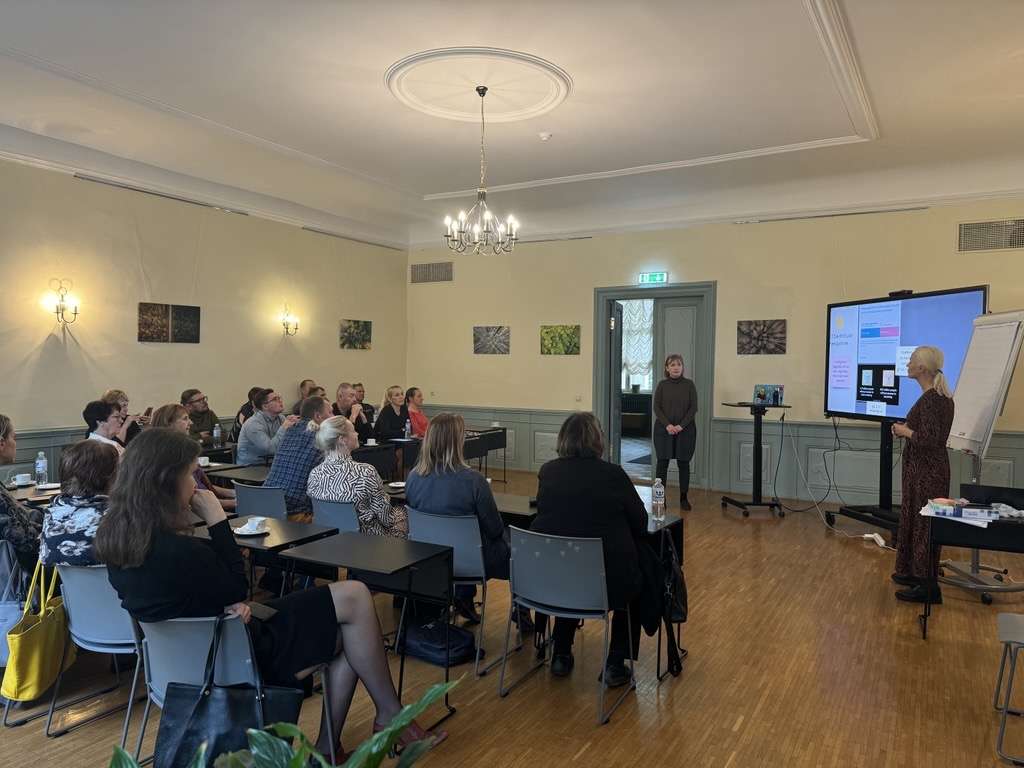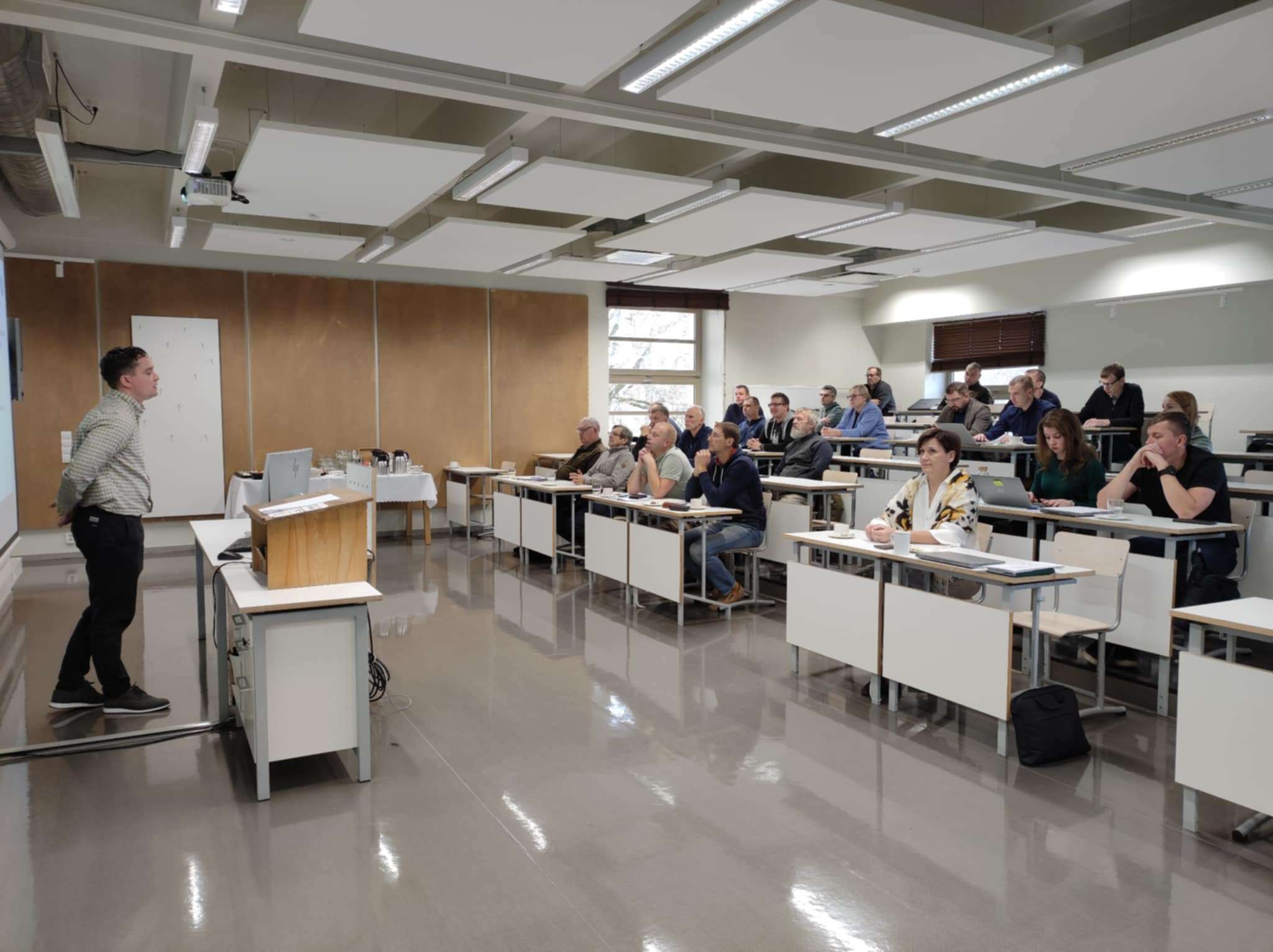This autumn, Luua Forestry School in Estonia has been actively involved in an innovative green skills project aimed at supporting businesses in their transition to a sustainable economy. The project creates flexible learning opportunities to equip both current employees and future specialists with the knowledge and skills needed for the green transition.
Key Achievements
- Updating Forestry Curricula and Occupational Standards
Teachers, university lecturers, and forestry sector representatives have closely collaborated to incorporate green transition competencies into occupational standards. The focus has been on sustainable practices, digital technologies, and climate-related knowledge, ensuring the forestry sector aligns with international sustainability goals. - Training for Forest Owners and Employers
A practical training program provided participants with knowledge and techniques to enhance biodiversity and resilience in forests against climate change. The training offered clear guidelines on how to adapt forestry practices to benefit both nature and long-term economic goals. - Empowering Educators
Teachers participated in workshops where they developed innovative teaching methods to integrate green skills into their lessons. The result is practical learning modules ready for classrooms, which will make sustainability an essential part of forestry education and lay the groundwork for future sector-wide training programs.
Why Does This Matter?
Integrating green skills into education demonstrates how schools can take the lead in addressing climate challenges and fostering sustainability. It shows how education can drive change in the forestry sector’s green knowledge base. Hopefully, such initiatives will inspire other institutions to foster impactful collaborations between vocational education, universities, and practitioners, driving societal transformation through education.




Text and photos: Kairit Prits.
